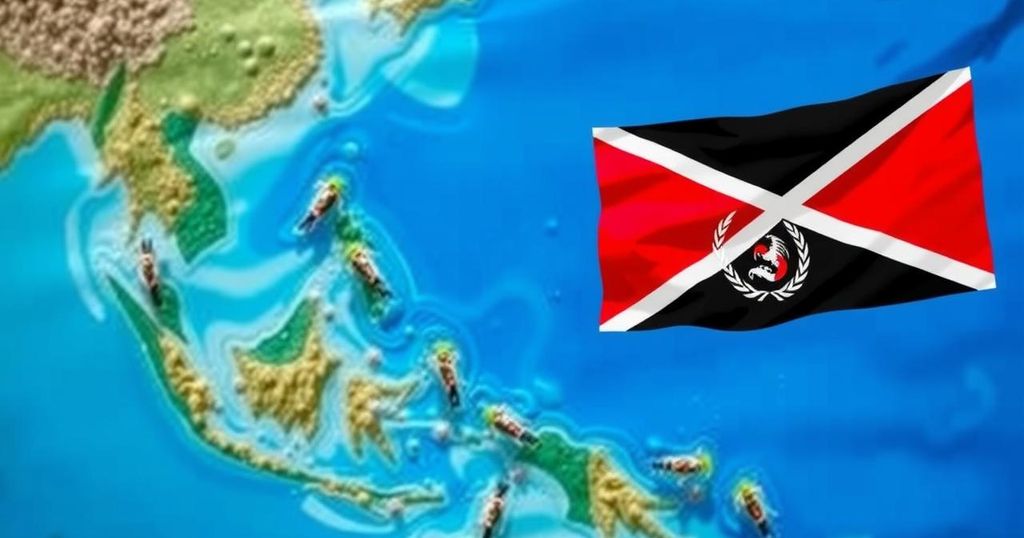Papua New Guinea Declares Boycott of UN Climate Summit, Criticizes Major Polluters

Papua New Guinea announced its boycott of the upcoming UN climate summit, labeling the negotiations a “waste of time” due to unfulfilled promises from major polluters. Foreign Minister Justin Tkatchenko criticized the lack of substantive progress in climate discussions and expressed the nation’s intent to pursue bilateral agreements for more effective climate action. This stance reflects a broader frustration among Pacific island nations regarding their marginalized position in global climate dialogues.
Papua New Guinea has announced its decision to boycott the upcoming United Nations climate summit, which is scheduled for next month. The nation’s government has condemned the global discussions on climate change as a “waste of time,” citing the prevalence of empty commitments from major polluters without resultant action. Foreign Minister Justin Tkatchenko expressed frank discontent, stating, “There is no point going if we are falling asleep because of jet lag because we are not getting anything done.” For a country that hosts a significant portion of the world’s rainforests, Papua New Guinea is considered highly vulnerable to the threats posed by climate change. Despite being recognized as one of the planet’s “lungs,” Tkatchenko lamented that major nations have largely evaded accountability regarding their emissions. He remarked, “COP is a total waste of time,” emphasizing the frustration felt over years of unfulfilled promises. The nation’s decision to abstain from the summit is a notable departure from the typical participation observed among governments. Tkatchenko highlighted the redundancies of these talks, questioning the utility of spending resources on discussions characterized as mere “talk fests.” As an alternative approach, Papua New Guinea aims to pursue climate agreements through bilateral discussions, seeking more effective partnerships with countries such as Singapore, already in negotiation. This strategic shift reflects a growing discontent among smaller island nations in the Pacific, which feel sidelined by larger powers during international negotiations. The backdrop of this decision includes previous instances where nations have criticized the efficacy of COP summits and called for boycotts. While the Paris Agreement established a promising framework, subsequent meetings have often been marred by criticisms of inaction and bureaucracy hindering climate funding directed to developing countries. In a poignant conclusion, Tkatchenko affirmed, “I am speaking up on behalf of the smaller island states that are worse off than Papua New Guinea. They were getting no traction and acknowledgement at all,” illustrating the urgent need for substantive climate action rather than token gestures. Papua New Guinea’s stance at this moment emphasizes a broader call for accountability and effective measures against climate change, challenging the status quo of climate negotiations at the international level.
Papua New Guinea, an island nation known for its extensive rainforest, has taken a stand against the upcoming UN climate summit, COP29, scheduled for November in Azerbaijan. The country’s government has expressed deep dissatisfaction with the perceived ineffectiveness of past climate negotiations, criticizing major polluters for their inability to follow through on environmental commitments. As one of the nations most vulnerable to climate impacts, Papua New Guinea’s position reflects a growing frustration among smaller nations regarding their marginalization in global discussions about climate change adaptation and resilience.
Papua New Guinea’s announcement to boycott the UN climate summit underscores a critical dissatisfaction with ongoing global climate negotiations, particularly the apparent lack of action from major polluting nations. The decision highlights a desire for effective and meaningful partnerships in climate initiatives, rather than the pitiful repetition of previous unfulfilled promises. In advocating for the interests of smaller island states, the government seeks to redirect its focus towards bilateral agreements that might yield more effective outcomes in addressing climate issues.
Original Source: www.rfi.fr





